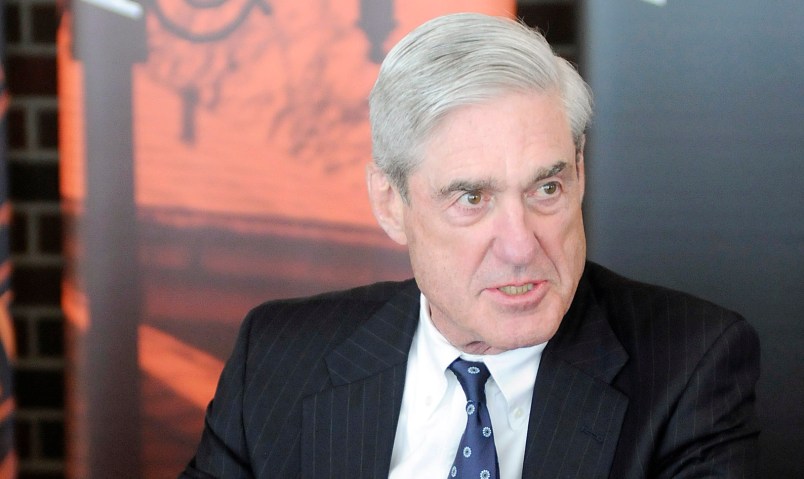Robert Mueller, the freshly named special counsel in the Russia investigation, is no stranger to bucking the wishes of a President seeking to get his way.
In 2004, Mueller, then the FBI director, participated in an intervention to prevent President George W. Bush’s chief of staff, Andrew H. Card Jr., and White House Counsel Alberto R. Gonzales from obtaining the signature of a hospitalized and barely-conscious John Ashcroft, the attorney general at the time, to reauthorize the the administration’s domestic surveillance program, which the Justice Department had declared illegal.
Mueller was alerted they were heading to the hospital by then-Deputy Attorney General James Comey, who went on to succeed Mueller as FBI director and whom, ironically, Trump just last week fired from that post over the Russia probe. Comey and Mueller rushed to the hospital to intercept Card and Gonzales, with Mueller calling hospital security to warn against letting the White House officials into Ashcroft’s room. The two arrived just before Card and Gonzales, who were rebuffed by Ashcroft when they presented him the executive order reauthorizing the program.
Now Mueller will be wading into a politically explosive matter involving a foreign country’s meddling in a presidential election, alleged ties between Trump associates and Russia, and a President who has been accused of obstruction of justice for allegedly pressuring Comey to drop the probe. The announcement came a mere 24 hours after news reports suggesting the existence of a memo written by Comey detailing the pressure from Trump to wind the Russia probe investigation.
Mueller, 72, was appointed by Deputy Attorney General Rod Rosenstein, who was overseeing the investigation after Attorney General Jeff Session recused himself from campaign-related investigation. Though registered as Republican, Mueller has often been described apolitical and is widely respected, with boosters on both sides of the aisle. His appointment as special counsel was immediately met with near-unanimous praise.
When he stepped down as FBI director in 2013, Mueller was the second-longest serving director in its history. He was appointed by George W. Bush in 2001, having served several stints in various US attorney’s offices as well as roles in the Justice Department that included overseeing its criminal division. He was officially sworn in as director only days before the September 11, 2001 terrorist attacks, though he had been serving as acting deputy attorney general for some time before that. He oversaw a transformation of the agency after the attacks to expand its focus on counter-terrorism and homeland security. In his tenure under the Bush administration, he faced scrutiny over why the 9/11 attacks weren’t prevented, oversaw the handling of the anthrax crisis and expanded the federal government’s surveillance and detention procedures.
His 10-year term was extended for two years by President Obama, who praised him for “extraordinary leadership and effectiveness.” At the twilight of his tenure was the FBI’s investigation into the Boston Marathon bombing in 2013. Since leaving the FBI, he has worked in private law practice at WilmerHale and also conducted a review of the NFL’s handling of domestic abuse allegations (his involvement in the NFL investigation was questioned given the football organization’s ties to the law firm).
He will resign from WilmerHale to avoid any conflicts of interest while overseeing the Russia investigation, the Justice Department said in its announcement of his appointment.
Correction: Mueller was serving as acting deputy attorney general before he became FBI director in 2001, not as acting FBI director. We regret the error.







This is a hopeful development.
Dems owe Rosenstein a massive apology for throwing their toys out of the pram when he did the right thing re Comey.
Who is Mueller: bad news for the Reps
Mueller is an impressive pick. Don the Con will need to wear Depends.
Trump exchanged a Comey for a Mueller. Is this what is meant by the art of the deal?
He should be impeached, but I predict President Cluster-Farce will limp through the next four years while the country suffers through his tenure.